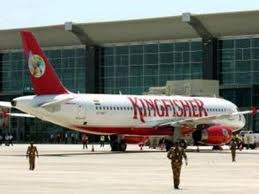
New Delhi, July 21: Bharat Bhushan's purported note on Kingfisher filed on July 9 — a day before he was summarily removed as director general of civil aviation — could have meant serious trouble for the beleaguered airline.
Accessed by TOI on Friday, the note reads: "The (airline's) financial condition continues to be precarious... In the course of its audit several engineering issues are emerging which have a direct bearing on safety... it is concluded that safety is likely to be compromised if the airline continues in its current functioning style."
The aviation ministry and the new director general, Prashant Sukul, vehemently deny that any such note exists, though Bhushan attached a copy of this purported note in his letter to the ministry and the Directorate General of Civil Aviation (DGCA) seeking a probe if the paper had indeed gone missing.
Indicating that action against the airline was being considered, the disputed note goes on to add, "a notice may be served on the airline... asking them to immediately arrange for payment of its employees and creditors... we may be constrained to suspend their operations if funds are not made available and liabilities reduced significantly within 15 days of the receipt of this notice."
DGCA: No records exist of Bhushan's Kingfisher note
Former DGCA Bharat Bhushan did not comment when asked to confirm the contents of the controversial note he had written on Kingfisher Airline's poor financial condition.
Late Friday night, new director general Prashant Sukul submitted a report to aviation secretary Nasim Zaidi after a search operation in the DGCA for the allegedly missing papers from the Kingfisher file.
"Bhushan's allegation seems to be an afterthought and no evidence has been found of the note ever having existed," a highly placed source who was privy to Sukul's report said.
"All sections of the DGCA were asked to conduct a search that did not yield anything. The report has concluded that there is no such paper and if there is one, it may only be in possession of the former DG as no records exist here."
With Sukul throwing his hands up, the ministry is set to ask Bhushan to hand over a copy of the file that he alleges has gone missing.
"A printout of a note - that could have been filed anytime - will not do. If there is an official file on which such noting was made, then the same should be given either in original or a photocopy.
An unsigned printout being shown as the note has no meaning as it could have been written anytime, anywhere, said the source. Questions on the alleged Kingfisher note arose as the timing of Bhushan's exit triggered suspicions.
The ministry maintains that Bhushan was removed in a hurry as the PM-headed appointments committee of the cabinet had given him extension till December while the ministry had sought senior IAS officer Arun Mishra to be made full-time director-general.
"The Cabinet secretariat goofed up big time. This entire issue has arisen because of their mishandling," said a source.
The ministry has steadfastly denied any link between Bhushan's removal and its stand on Kingfisher Airlines. Sources said aviation minister Ajit Singh had told Vijay Mallya clearly to shut Kingfisher if he couldn't raise funds to run the airline.
Excerpts from Bhushan's purported note
"We have been closely monitoring the operations of M/s. Kingfisher Airlines from November, 2011 onwards. During the period there has been significant reduction in fleet numbers as well as number of operational aircraft... Pilot strength has reduced to less than 50%... The financial condition continues to be precarious.. They (airline management) have promised a recovery plan every time they met us, but this has not happened even after passage of several months... In the course of its audit several engineering issues are emerging which have a direct bearing on safety... Under the circumstances, it is concluded that safety is likely to be compromised if the airline continues in its current functioning style. A notice may be served on the airline indicating the background and asking them to immediately arrange for payment of its employees and creditors, if not in full at least to a substantial part. It may be indicated that we may be constrained to suspend their operations if funds are not made available and liabilities reduced significantly within 15 days of the receipt of this notice."





Comments
Add new comment